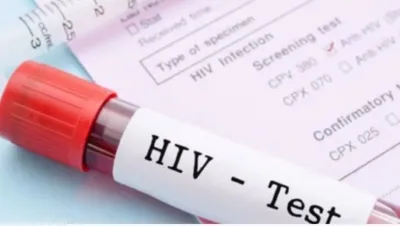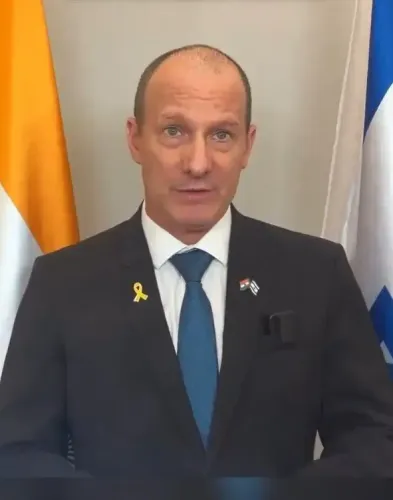Is the Global HIV Response Facing Its Greatest Setback?

Synopsis
Key Takeaways
- Global HIV response experiences significant setbacks.
- Reduced funding threatens essential health services.
- Prevention programs for young women are particularly vulnerable.
- Urgent need for global solidarity and investment.
- Failure to meet 2030 targets could lead to millions of new infections.
Geneva, Nov 26 (NationPress) A recent report from the Joint United Nations Programme on HIV/AIDS (UNAIDS) highlights that the worldwide response to HIV has experienced its most critical setback in years. The report emphasizes the urgent need for solidarity, resilience, investment, and innovation to meet the objective of eradicating the AIDS epidemic.
Entitled "Overcoming Disruption, Transforming the AIDS Response," the report reveals the dire consequences of diminished international funding and a lack of global unity on HIV prevention initiatives.
Significant reductions in international HIV funding anticipated for 2025 are exacerbating existing financial shortfalls, with projections from the Organization for Economic Cooperation and Development indicating a 30-40 percent drop in external health assistance compared to 2023. This decline will likely lead to severe disruptions in health services across low- and middle-income nations.
Prevention services have faced the brunt of these cuts, as reductions in supplies of HIV prevention medications and a notable decline in voluntary medical male circumcision have widened the protection gap for millions. Programs aimed at young women have also been dismantled, leaving many adolescent girls and young women without access to prevention, mental health, or gender-based violence services, thus heightening their vulnerability.
The report cautions that failing to meet the 2030 global HIV targets outlined in the forthcoming Global AIDS Strategy could lead to an additional 3.3 million new HIV infections between 2025 and 2030, according to the Xinhua news agency.
Globally, 40.8 million individuals are living with HIV, with 1.3 million new infections reported in 2024, and 9.2 million people still lacking access to treatment, as per UNAIDS.
As we approach World AIDS Day on December 1, UNAIDS is calling on global leaders to reaffirm their dedication to solidarity, multilateralism, and the collective effort to eliminate AIDS, which includes maintaining financial support for the HIV response, investing in innovation, safeguarding human rights, and empowering communities.
"This is our moment to choose," stated Winnie Byanyima, executive director of UNAIDS.
"We can either allow these disruptions to reverse decades of progress or unite behind the shared vision of ending AIDS. The lives of millions depend on the decisions we make today."









